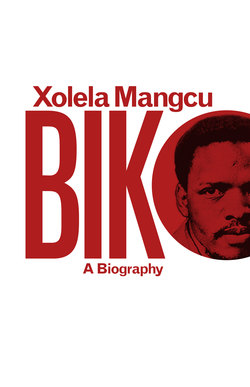Biko: A Biography

Реклама. ООО «ЛитРес», ИНН: 7719571260.
Оглавление
Xolela Mangcu. Biko: A Biography
Отрывок из книги
To the memory
Mrs Alice Nokuzola Biko – MamCethe
.....
The battle between the conservative and radical modernisers played itself out in many ways. The leading and arguably the most influential African leader of his time in the Cape was John Tengo Jabavu. He was one of Soga’s successors as a leading opinion maker in black society. He was the proprietor of the black newspaper Imvo Zabantsundu, and was also one of the people behind the establishment of the University of Fort Hare as the first institution of higher learning for black people in South Africa. Imvo Zabantsundu became the single most important mouthpiece for African rights. He used the newspaper to launch protests and call for a conference against the Parliamentary Voters Registration Act, which sought to nullify tribal tenure as a basis for the property qualification. According to André Odendaal, the conference authorised Jabavu to call for the creation of a national organisation to represent Africans on a political basis.[70] However, Jabavu refused to do this mainly because it would take away from his personal leadership but also because he felt this would alienate whites “and stimulate racial distinctions instead of promoting practical non-racialism”.[71] The philosophical foundations of a cautious non-racialism were indeed laid in that period, despite Jabavu not responding to the call of national leadership.
Jabavu’s Achilles heel was that he was beholden to his white financiers. He made two fatal mistakes, politically speaking, that cost him support among Africans. The first was his support for the Afrikaner Bond which threatened to bring Cecil John Rhodes’s government down in the 1898 elections. Going into those elections the Afrikaner Bond, under the leadership of JH Hofmeyr, wooed African supporters by promising them the vote, and Jabavu threw in his lot with them against his erstwhile liberal supporters, including Rhodes. The second mistake Jabavu made was to come out in support of the Land Act of 1913. This earned him the ire of one of the leading radical modernisers of the time, Sol Plaatje. Plaatje was a well-known author and edited Koranta ea Becoana – The Bechuana Gazette. He had been elected secretary of the South African Native National Congress (later the ANC) in 1912. Plaatje challenged Jabavu to a public debate, offering to travel all the way from Mafeking in the north to Jabavu’s home in King William’s Town:
.....